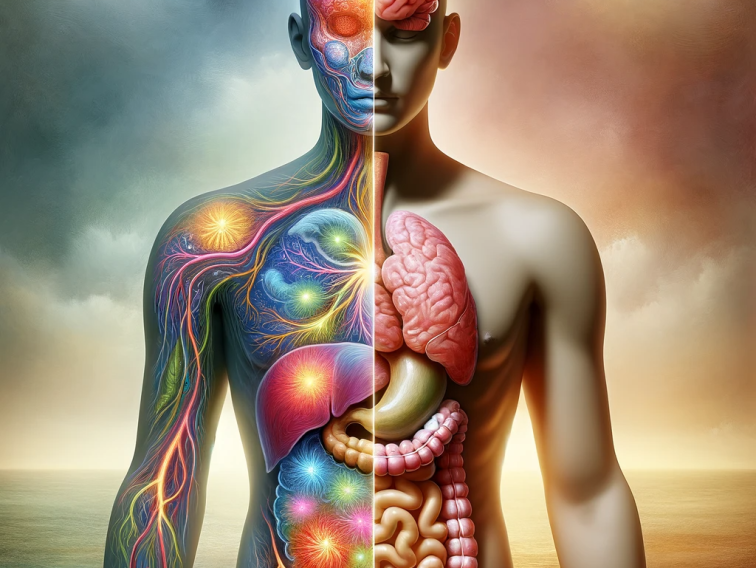Optimal mental wellness is crucial for living a fulfilling life. Recent research has revealed that the key to enhancing mental health and cognitive function may lie within the gut. The microbiome, a collection of microorganisms that reside in the gut, plays a significant role in maintaining gut-brain health.
But what happens when the microbiome is imbalanced? Imbalanced microbiome can result in digestive issues and can have negative consequences on mental health and cognitive function. In this article, we will explore the link between the gut and the brain, and provide practical strategies for restoring and maintaining a healthy gut-brain connection for optimal mental wellness.
Understanding the Gut-Brain Connection
The gastrointestinal tract and the brain are interconnected through a bidirectional network of neurons, hormones, and signaling pathways. This is known as the gut-brain connection and plays a significant role in overall health, particularly on brain health and cognitive function.
At the core of this connection is the microbiome, a diverse collection of microorganisms living in the gut. Research has shown that gut microbes can influence mental wellness by producing neuroactive compounds that affect neurotransmitter levels and brain function.
Therefore, maintaining a healthy gut is crucial for optimal brain function. Dysbiosis, an imbalance in gut microbiota, has been linked to various neurological disorders, including anxiety, depression, and even cognitive impairments.
To support gut health and maintain a healthy gut-brain connection, it is essential to consume a balanced diet rich in fiber, probiotics, and prebiotics. Additionally, lifestyle factors such as regular exercise and stress management can also influence gut-brain health.
Balancing Your Microbiome
Restoring gut-brain health requires a balanced microbiome, the community of microorganisms that reside in the gut. Probiotics, the beneficial bacteria that support gut health, and prebiotics, the fibers that nourish them, are essential for promoting a diverse and healthy microbiome.
To incorporate probiotics into your diet, consider consuming fermented foods, such as yogurt, kefir, and kimchi. Alternatively, probiotic supplements are also available and may be recommended by a healthcare provider.
Prebiotic fibers are found in many plant-based foods, such as garlic, onions, and bananas. Additionally, certain supplements, such as psyllium husk, can provide a source of prebiotics to support a healthy gut microbiome.
Probiotic-Rich Foods
| Food | Probiotic Strains |
|---|---|
| Yogurt | Lactobacillus bulgaricus, Streptococcus thermophilus |
| Kefir | Lactobacillus kefiranofaciens, Leuconostoc mesenteroides |
| Kimchi | Lactobacillus brevis, Lactobacillus plantarum |
By incorporating probiotics and prebiotics into your diet, you can support a healthy microbiome and promote gut-brain health.
Enhancing Mental Wellness through Diet
Research has shown that dietary choices can significantly impact mental wellness by supporting gut-brain health. The gut-brain axis, the connection between the gut and brain, is influenced by certain nutrients and foods that positively impact mood and cognitive function.
Here are some examples of nutrient-rich foods that promote a healthy gut-brain connection:
| Food | Nutrient |
|---|---|
| Fatty Fish (salmon, sardines) | Omega-3 Fatty Acids |
| Leafy Greens (spinach, kale) | Folate |
| Fermented Foods (yogurt, kimchi) | Probiotics |
Incorporating these nutrient-rich foods into the diet can help support mental wellness by maintaining a healthy gut-brain connection. However, it’s also essential to avoid foods that can harm gut health, such as processed foods, high-sugar foods, and artificial sweeteners.
By focusing on a healthy, nutrient-dense diet, individuals can enhance mental wellness by supporting gut-brain health.
The Role of Lifestyle Factors
Lifestyle factors play a crucial role in maintaining gut-brain health. Stress management techniques, quality sleep, and regular exercise all promote a balanced microbiome and support mental wellness.
Stress Management
Stress can negatively impact gut health and contribute to the development of mental health disorders. Encourage your readers to incorporate stress management techniques into their daily routine, such as meditation, yoga, and deep breathing exercises.
Sleep Quality
Adequate sleep is essential for restoring and maintaining a healthy gut-brain connection. Recommend that your readers prioritize getting quality sleep by establishing a consistent sleep schedule, limiting screen time before bed, and creating a relaxing sleep environment.
Regular Exercise
Regular exercise has been linked to improved gut microbiome diversity and improved mental wellness. Encourage your readers to find physical activities they enjoy and incorporate them into their daily routines to support gut-brain health.
The Importance of Seeking Professional Guidance for Gut-Brain Health
While there are steps individuals can take to restore and maintain gut-brain health on their own, consulting with a healthcare provider who specializes in this area can be invaluable. A qualified practitioner can provide personalized guidance based on an individual’s unique needs, health history, and lifestyle factors.
When seeking professional guidance for gut-brain health, it is important to look for a healthcare provider who has experience and training in this area. This may include a gastroenterologist, functional medicine practitioner, or integrative health coach. These professionals can perform specialized tests to assess gut health and provide tailored recommendations for restoring balance.
Working with a healthcare provider can be particularly beneficial for those who are experiencing chronic digestive issues or mental health concerns. A practitioner can help identify underlying causes and develop a comprehensive treatment plan, which may include dietary changes, supplementation, stress management techniques, and other interventions.
Overall, seeking professional guidance is an important step in restoring and maintaining gut-brain health. It can help individuals achieve optimal mental wellness and improve overall quality of life.
